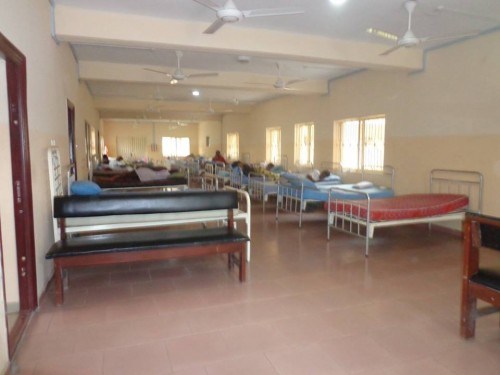“In the past, people came from overseas to get medical treatment at the University College Hospital, Ibadan, but now the reverse is the case.
“Government is not pumping money into the health sector.
“The Abuja Declaration on 15 percent funding for the health sector is yet to be fulfilled.
“Quality health service delivery, not corruption, should be the focus of government because once a country does not get it right with its health and education systems, it has failed.
“The way emergency was declared in the security situation of the country, the same should be done for the health sector so that we can chart a way forward,” he said.
Mr Saheed said having a functional Primary Healthcare (PHC) system in the country was an effective way of addressing the nation’s health sector challenges.
“We should follow it up with an effective secondary and tertiary care, the tertiary care will take care of medical tourism.
“Each region in the country should have hospitals for specialization – like pediatric, cardiology – and we will not need to move out of the country,” he said.
Mr Saheed urged that all stakeholders should agree on collective and unified common agenda that would deliver efficient, affordable and accessible healthcare services in the country.
The Vice-Chairman of the guild, Oluwajimi Sodipo, said PHC system should not become redundant in the country.
He said the federal government had funds for PHCs and that such funds should be made more accessible.
Mr Sodipo said local governments should take PHCs as a priority, especially with their attainment of autonomy.
Mr Sodipo added that all tiers of government should collaborate to find the right funding, operational model and management that would improve healthcare delivery.
He also called for incentives that would discourage brain-drain among health workers.
According to him, if the brain-drain is not urgently discouraged, the country might resort to importing medical professionals to address the shortage.
Source: Premiumtimes

 The Chairman of the Lagos Medical Guild, Babajide Saheed, on Tuesday, urged the federal government to declare a state of emergency toward revitalizing the health sector. Mr Saheed made the call during a media briefing in Lagos.
The Chairman of the Lagos Medical Guild, Babajide Saheed, on Tuesday, urged the federal government to declare a state of emergency toward revitalizing the health sector. Mr Saheed made the call during a media briefing in Lagos.




